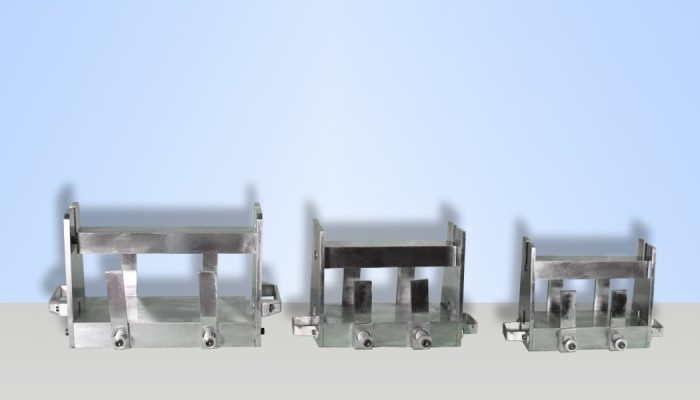Rock Tensile Strength Test (Brazilian Test)
The Brazilian Test is a geotechnical laboratory test to measure the indirect tensile strength of rocks. Which, due to its simplicity and efficiency, is roughly the usual laboratory method used in rock geotechnical research.
In this method, a cylindrical sample of rock is placed along its circular cross-section under vertical loading. To do this, a cylindrical sample is placed on a special jaw (according to the diameter of the specimen) and then loaded with a force frame (usually a concrete breaker jack).
| Standard: |
ASTM D3967
|
Technical Specifications:
|
Ordering
Code |
Description
|
Sample
Size mm
|
Dimension
Cm
|
Weight
Approx. Kg
|
Material
|
|---|---|---|---|---|---|
|
SMRO-1460 |
Rock tensile strength test jaw |
Ø54 |
158×150×35 |
5.900 |
Iron-chromium plating |
|
SMRO-1470 |
Rock tensile strength test jaw |
Ø76 |
160×160×40 |
6.700 |
Iron-chromium plating |
|
SMRO-1480 |
Rock tensile strength test jaw |
Ø87 |
180×180×45 |
9.400 |
Iron-chromium plating |





